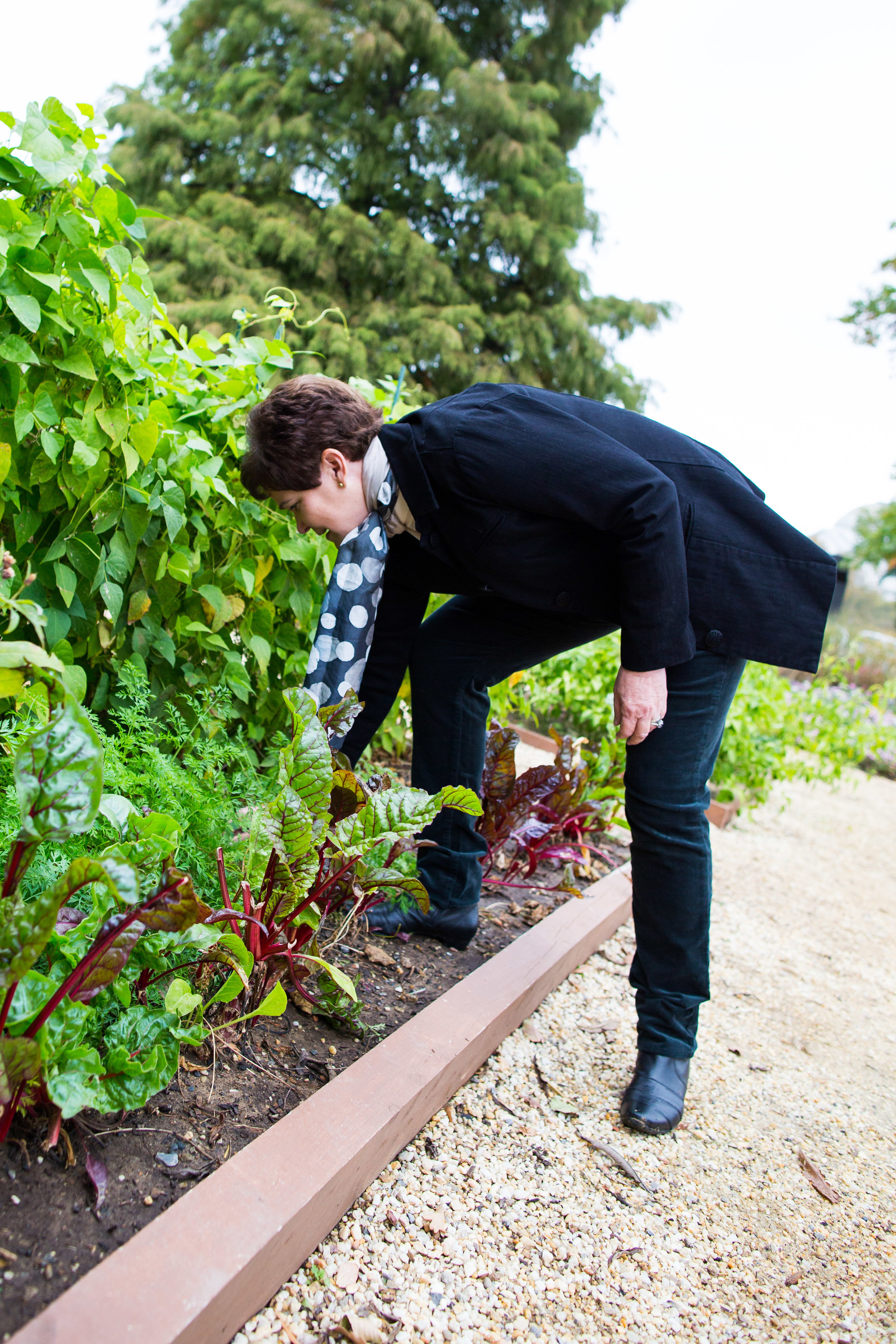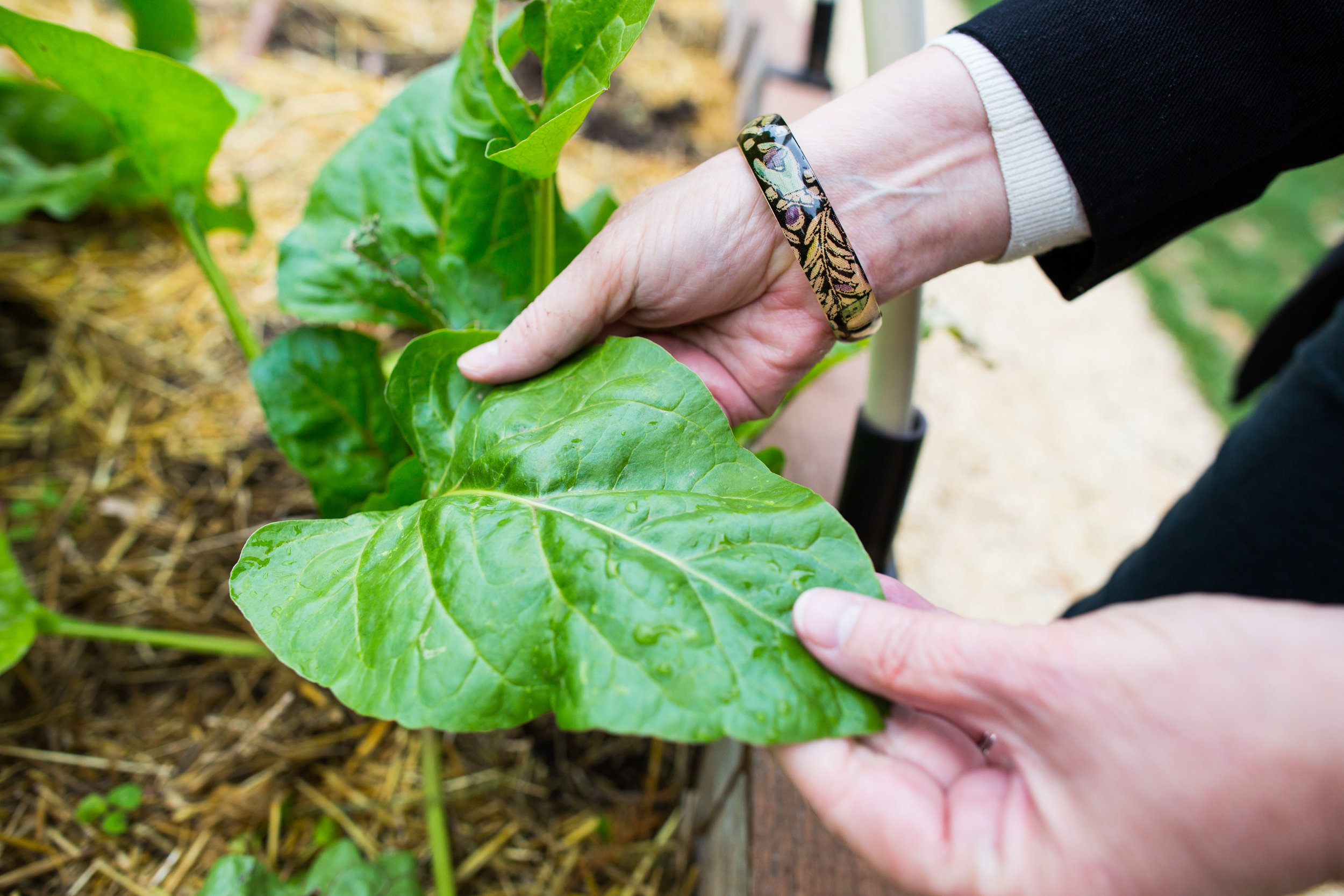the daughter of peanut farmers: an interview with krysta harden
USDA Deputy Secretary Krysta Harden
It’s a chilly October morning, I arrive just before her at The People's Garden and take the opportunity to enjoy the bees and many birds that are flitting around. Even though a few of the beds are being prepped for winter, there were peppers still on the bushes, vibrant chard, and beets in the ground. I was unaware this small, organic urban farm existed right here off the National Mall, open to all visitors, year 'round and wondered how many times I had strolled past while on my way to the many Smithsonian museums that line the Mall.
The People’s Garden is on the grounds of the USDA building in Washington D.C. - it features a sampling of the agricultural commodities and tree samplings grown here in the United States. There is also a Three Sisters Garden featuring Native American heritage corn, beans and squash, rain gardens, an apiary, and a weekly farmers market.
I was surprised by her arrival - she found me crouched between the beds, entranced by the gorgeous vegetables and flowers in the shadow of our nation’s capital building; “Hi, I’m Krysta” she said smiling as I stood to meet her.
Raised vegetable beds and pollinator areas make up this corner of The People's Garden.
'Krysta' is Deputy Secretary Krysta Harden, of the United States Department of Agriculture. We have a POTUS, a FLOTUS and SCOTUS so in my mind, she's the FFOTUS; Female Farmer of the United States. She’s a self-described daughter of peanut farmers and rightly proud of her heritage. Hailing from a multi-generational farming family, her parents still farm the mid-sized peanut, corn, cotton and vegetable farm in Georgia where she was raised.
The US Senate unanimously confirmed Deputy Secretary Harden in August of 2013. In the short two years since then, she’s championed many causes from the Farm Bill to cultivating the next generation of farmers, but one that has a special interest to us both, and is what brought us together that morning -- Women in Agriculture.
USDA Deputy Secretary Krysta Harden
USDA Deputy Secretary Krysta Harden
As we wandered around the garden beds, sharing recipe ideas and enjoying the scents of fresh dirt as we unearthed a few carrots and beets, we talked of challenges in the public perception of agriculture and how she sees her role in helping to create access for female farmers.
FFP: You have implemented a lot of programs including the 2008 Farm Bill, the Hunger-Free Kids Act and the recent collaboration with NASA. What programs are you working on now that will affect women in agriculture?
KH: At the end of October, I spoke at the National FFA convention and announced the launch of a new website to help farmers and ranchers get started, www.usda.gov/newfarmers. This site includes a discovery tool, specifically tailored to the needs of new farmers.
It also includes a whole section on women in agriculture in which you can find leadership opportunities and other resources. I started the Women in Agriculture Mentoring Network last February to help women help each other. It is through this forum that women can get advice and communicate with one another in order to continue to grow. If anyone is interested in joining the network, they can e-mail agwomenlead@usda.gov.
USDA Deputy Secretary Krysta Harden
USDA Deputy Secretary Krysta Harden
FFP: What has been your biggest challenge in your current role?
KH: My biggest challenge is finding the time to do everything that I want to do. As Deputy Secretary, I am the COO of the U.S. Department of Agriculture, which includes dealing with management and budget issues.
During my discretionary time, my work is concentrated on implementing the Farm Bill, answering the question: who will be farming next? And helping lift up and connect our women in agriculture.
USDA Deputy Secretary Krysta Harden
USDA Deputy Secretary Krysta Harden
FFP: What do you see as the biggest impediment to women entering the field of farming?
KH: Many of the challenges women face when they look to enter farming are no different than those of any new farmer. They too are looking for access to land, capital and business planning. The issues are the same and USDA is working to provide new farmers with the resources they need to be successful. I also find that women tend to have more work/life balance challenges, but that is likely in any profession.
FFP: In your travels to meet and talk with female farmers across the country, what have you learned? What specific challenges are women in agriculture experiencing?
KH: My biggest take away is that women are doing it all. They are passionate about the land and they want to make a living on it. They are not waiting and they are going after what they want out of their careers.
The challenges really lie in being taken serious and striking that work/life balance. The women I meet are very serious about what they are doing in agriculture and it shows.
USDA Deputy Secretary Krysta Harden
FFP: In your mind, what would a food system look like if more women were farming?
KH: I think the biggest benefit to having women in farming is that women are used to multitasking and making quick decisions. Women have a different way of thinking that is very practical. Women are also more relatable and still make up the majority of food purchasers when it comes to food shopping for their families, so their opinions really hold a high value.
FFP: What do you wish people understood about farming?
KH: I wish that more people understood that farming is a business. Our farmers and ranchers need to make a profit. They put everything they have into the land and their passion is being able to provide for others.
FFP: What are some things we as can do to help create support, equality and awareness for female farmers and small-scale farms?
KH: To do exactly what you are doing—tell the story. Highlight the amazing women in agriculture that are doing great work around the world. It is important to honor the diversity of our industry and the contributions women have made since the beginning of farming.
USDA Deputy Secretary Krysta Harden
USDA Deputy Secretary Krysta Harden
FFP: If you could change one thing about our current food system, what would it be?
KH: It would be to expand ways to bring more diversity into agriculture. No one wants to be a token and it is important to appreciate the opinions of those different from yourself.
The mayor of Charleston once said “it’s not about taking chairs away but adding more chairs to the table.” We need anyone who is interested in caring for the land and growing food to have all the tools they need to be able to do so. And if they are interested, we want to encourage them to pursue leadership positions to make our industry even stronger.
USDA Deputy Secretary Krysta Harden and Audra Mulkern of the Female Farmer Project at the USDA in Washington DC
Thank you, Deputy Secretary Harden for all your work to meet with and spend time listening to female farmers around the country. I enjoyed spending the morning with you, thank you for taking the time to answer my questions, and for the tour of the beautiful People’s Garden. It was a privilege and an honor.
Originally published: November 10, 2015












